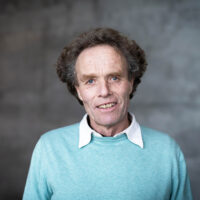Who am I? It’s a simple question, but one that is difficult to answer. I am myself and remain myself – even if some of my possessions are taken away from me – because I have them; however, I am not them. And what about important experiences that I’ve had and that I don’t want to miss because they’ve become a part of my personality?
They’re not an interchangeable possession. My father, who twice experienced the devaluation of his money, used to say: travel is the safest investment. Those who can look back with satisfaction on a rich life in old age are able to identify with their memories – I am the one who has experienced all this. However, am I only or primarily my past? The person who loses his memory, by accident, is badly off. However, no less so the individual who loses his future, because with the loss of perspective of the future, the meaning of life is also lost.
Some young people speak of «No future» when they want to express their loss of identity. Psychiatrists sound a little more academic when they speak about losing the meaning of life in neurosis. I am not only who I have become, but perhaps even more who I can become – and want to become.
From Johannes W. Schneider: ‹Who am I?› – p. 59, Stuttgart 2021: From Jean-Claude Lin, «In the Garden of Time».
Translation Eliza Rozeboom
Graphic Sofia Lismont






Excellent!!!!!
erst wen man sich die frage stellt “was ist den aus mir geworden”? kann man anfangen sich zu begegnen im moment!